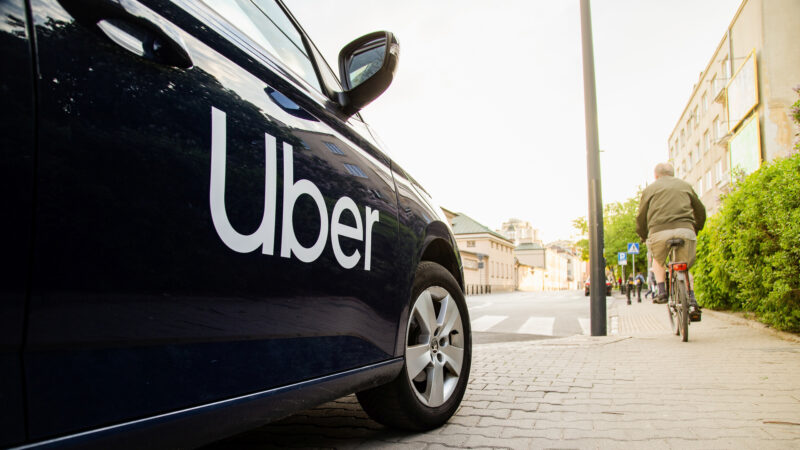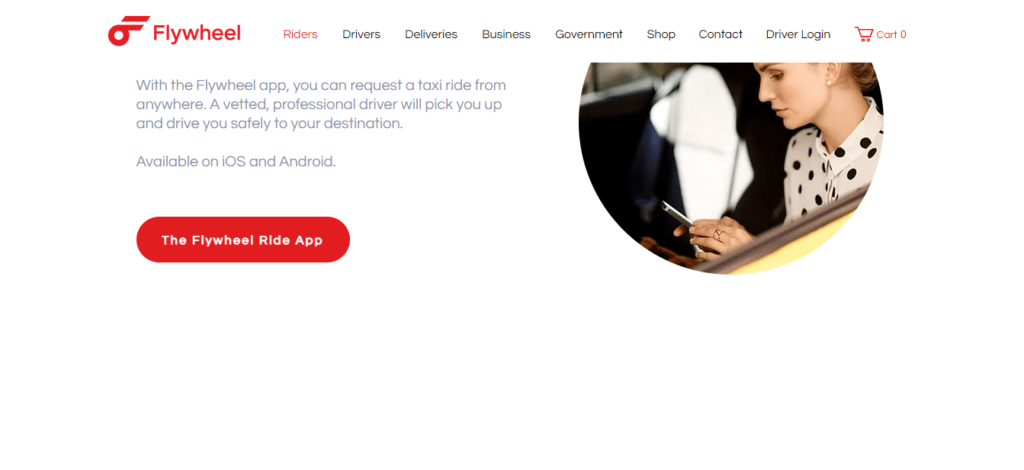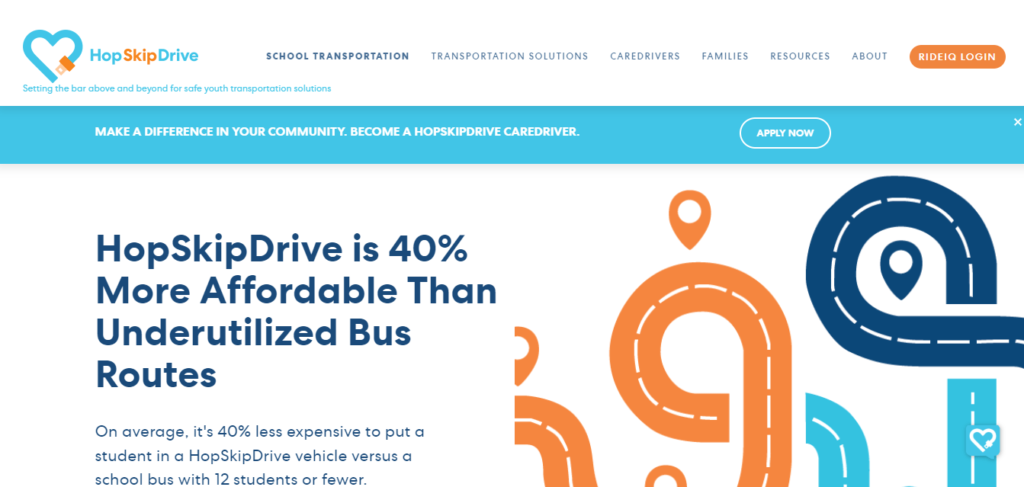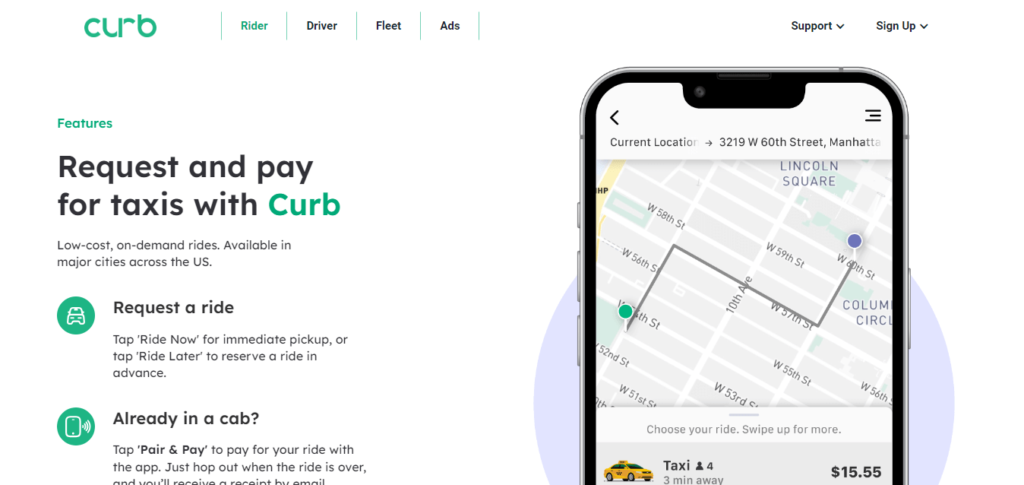In today’s digital age, online cab booking services have seamlessly integrated into our daily routines, with Uber reigning supreme in the market. Offering expansive cab services across cities and countries worldwide, Uber has solidified its position as one of the largest players in the industry. However, despite its dominance, Uber still falls short in certain aspects such as the absence of features like Uber Driver, Surge Pricing, and a fully automated system. Therefore, to provide you with a comprehensive overview, this article presents 10 alternatives to Uber that offer competitive cab services.
What is Uber?

Uber Technologies, a multinational transportation company, offers a range of services including ride-hailing, food delivery, freight transportation, and courier services.
Founded in 2009 by Garrett Camp, Uber’s inception involved an $800 investment to hire a private driver on the eve of its business launch.
As the largest ridesharing company globally, Uber boasts over 150 million monthly active users and a network of more than 6 million drivers. Since its establishment in 2010, Uber has facilitated over 26 million rides per day and amassed over 46 billion drives.
Challenges Facing Uber in the Coming Years
Despite its longstanding presence in the industry, Uber’s reputation has faced gradual erosion in recent years due to several challenges and potential obstacles it must confront.
1. Driver Status:
A key challenge revolves around the classification of drivers, whether they should be deemed as employees or independent contractors. Uber, in an effort to safeguard its interests, opts for the latter classification, positioning itself as a technology company merely facilitating connections between drivers and passengers. While this classification benefits the company and some drivers, many have reported dissatisfaction, citing inadequate wages compared to what they could earn as independent contractors. Moreover, Uber has been embroiled in numerous lawsuits filed by drivers in Massachusetts and California.
2. The California Conundrum:
The ongoing dispute over driver status encountered legislative hurdles in California, a pivotal market for Uber given its population of 39 million. In 2019, the California senate passed Assembly Bill 5, mandating Uber, Lyft, and other ridesharing companies to classify their drivers as employees rather than independent contractors.
3. Taxation Issues:
The debate over driver classification also extends to tax implications. If Uber were to relinquish its status as a technology company and be categorized as a livery company, the government could assert that the entire ride payment constitutes Uber’s revenue, subjecting it to taxes and regulatory oversight.
4. Driver Safety Concerns:
Uber drivers face various risks, particularly in regions where the company has been banned. In such instances, drivers may encounter threats from local authorities or rival transportation services. Additionally, airport authorities have intensified scrutiny, imposing restrictions on Uber’s operations for drop-offs and pickups.
5. Challenges of International Expansion:
As Uber expands its footprint into Asian markets, it confronts challenges related to local competition and regulatory frameworks. Not only are there efforts to promote indigenous businesses, but local taxi services often offer more affordable options, resonating better with customers. Consequently, Uber’s global expansion has encountered significant hurdles in recent years.
Top 10 Best Uber Alternatives In 2024
1. Flywheel

Operating in San Francisco, Flywheel stands as one of the oldest cab services in the region, offering a comparable experience to Uber. Praised for its courteous drivers and clean vehicles, Flywheel boasts the second-largest fleet of wheelchair-accessible taxis, accompanied by drivers trained to ensure passenger comfort.
2. Grab

Originating in Malaysia in 2012, Grab has evolved into a comprehensive service provider, offering cab services alongside food and grocery deliveries, and mobile payment solutions. With operations spanning over 400 cities, Grab prioritizes user convenience with its user-friendly interface and robust customer support, while also supporting local businesses by featuring a variety of services from restaurants and grocery stores.
3. HopSkipDrive

Focused on transortation for children and older adults, HopSkipDrive serves 13 states in the United States, catering primarily to school-aged children under the IEP or McKinney-Vento Homeless Assistance Act categories.
4. Bolt

Formerly known as Taxify, Bolt, established in Estonia in 2013, operates in over 50 countries, offering affordable ride-hailing services with a commitment to safety. With a pricing model designed to benefit both riders and drivers, Bolt presents itself as a reliable alternative to Uber, emphasizing values of safety, empathy, and community support.
5. Gett

Originally named GetTaxi, Gett has gained popularity in the cab and taxi-sharing market with its user-friendly interface and established features. Expanding beyond its taxi services, Gett now offers B2B travel management solutions, demonstrating versatility in its operations across the United States, United Kingdom, and Israel.
6. OLA

Founded in Bengaluru, India, in 2010, OLA has expanded its ride-sharing services not only within India but also to countries like Australia, New Zealand, and the United Kingdom. With a smooth transition from trip-planning to cab services, OLA has emerged as a global competitor in the ride-sharing market.
7. Wingz

Specializing in pre-scheduled, flat-fee private rides, Wingz primarily serves airport transfers in the United States. Offering fixed charges and the option to request preferred drivers, Wingz prioritizes safety and customization, presenting a reliable alternative to Uber.
8. Via

With operations in over 20 countries, Via utilizes an algorithm to match passengers heading in the same direction, reducing the number of cars on the road and lowering costs. With a focus on sustainable ride-sharing, Via offers a unique alternative to Uber, emphasizing efficiency and affordability.
9. Cabify

Operating mainly in Spain, Latin America, and parts of Europe, Cabify prioritizes safety, transparent pricing, and quality service. With a commitment to expanding its reach, Cabify aims to provide safe and reliable cab services while supporting local businesses across regions.
10. Curb

Connecting riders with professional drivers, Curb combines the reliability of traditional taxis with modern technology. Offering both instant and pre-scheduled bookings, Curb supports local taxi businesses while providing users with a convenient and dependable alternative to Uber.
Conclusion:
Uber, having facilitated over 47 billion rides since its inception in 2010, remains a significant player in the ride-sharing industry. However, recent legal challenges and controversies surrounding Uber have tarnished its reputation and impacted its market position. Consequently, many users have sought out alternative ride-sharing and cab services platforms deemed safer and less controversial.
Therefore, if you’re in search of an alternative ride-hailing service to Uber, our comprehensive guide offers valuable insights. We address the reasons behind Uber’s setbacks with its customers, users, and drivers, while also presenting 10 alternatives to Uber in 2024 that prioritize safety and reliability.

